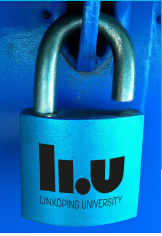**Detta blogginlägg finns också på svenska**
Imagine a site where all important information that you need for your studies is collected, from access to timetables to tools to facilitate your learning. Actually, there is such a site – Liunet Student.
All that you need in one place
Liunet is the navigating aid you need during your time at LiU. Here you can access tools for finding your way around campus, booking a study room, and keeping track of your timetable. Via Liunet, you can also download software that are essential when studying, and find tips on how to make your learning more efficient and joyful.
The Library is there to help you when you need it
When studying at university it is sometimes easy to get stuck, especially when you need to find scholarly sources and to evaluate them ahead of using them in your paper or report. The University Library is here to help you and can offer you the tools you need to succeed.
At the Library’s pages on Liunet, there is information about how to access the books and articles that you need for your courses. Many of them are available online, and via the Library you can access our e-resources from home and around the clock.
But the Library offers more than publications. Via Liunet, you can find and register for workshops, lectures and webinars on topics such as Python programming, reference management software, Excel, and how to use and get access to equipment such as sewing machines, VR gear, and 3D printers. Regardless if you are a beginner or have previous experience with such equipment, there is always something for you.
Become your own expert
At Liunet, there are guides and resources that will help you enhance your study skills, such as abilities in information seeking, evaluating sources, academic writing and presentations. With such skills in your arsenal, you will be set to achieve your goals at LiU.
Welcome to Liunet!
Access to Liunet
As soon as you have received your LiU-ID you can access Liunet. There are many ways to get there, for example under “Internal” in the footer of every page on liu.se and via Lisam (use the LiU icon to reach the “Digital entrance” and click Liunet).
By: Rebecka Öhrn, librarian, Valla Library
Translated by Peter Igelström



